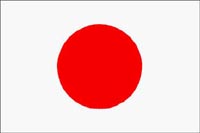Japan urges UN to approve resolution against North Korea
South Korea said it was dispatching envoys to China, Japan and the U.S. to coordinate the response to the crisis, sparked last week when the North fired seven missiles off its eastern coast. The Group of Eight major industrial nations also were to issue a statement at an upcoming summit demanding North Korea freeze any further missile launches, according to a news report.

Ambassadors at the United Nations from Japan and the five veto-wielding permanent Security Council members, the United States, Russia, China, Britain and France, were set for talks Friday after meeting three times the day before to discuss a resolution, the AP reports.
In Tokyo, Chief Cabinet Secretary Shinzo Abe pressed for quick, tough U.N. action against the North.
The U.S. State Department said diplomatic efforts to persuade North Korea to return to deadlocked six-nation nuclear disarmament talks, where the missile issue also could be raised, were shifting away from Asia to the U.N.
State Department spokesman Sean McCormack said Thursday that Chinese officials now in Pyongyang apparently "haven't heard anything to indicate that the North Koreans have come around to making a positive response to the rest of the world."
South Korean Vice Foreign Minister Lee Kyu-hyung will head Saturday to China for talks with Beijing's top nuclear negotiator, Wu Dawei, who was to return home that day from Pyongyang. Also, South Korea's main nuclear negotiator, Chun Young-woo, will travel next week to Washington and Tokyo.
Closing off another possible avenue for diplomacy, the North pulled out Thursday from high-level talks with South Korea after Seoul said it wouldn't discuss any aid while Pyongyang abstains from the nuclear negotiations, which involve the Koreas, China, Japan, Russia and the United States.
Subscribe to Pravda.Ru Telegram channel, Facebook, RSS!




